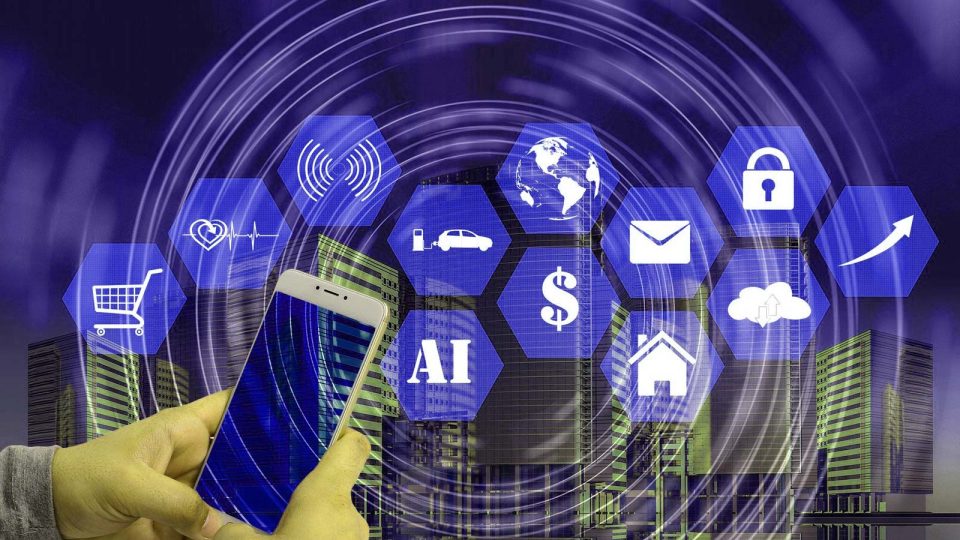EarlyBirds an Australian company that brings together innovators, early adopters, and subject matter experts, is helping corporations leverage the trailblazing digital technologies that are driving manufacturing and industry in the 21st century.
CIO INFLUENCE News: Advanced Software Products Group Enhances ReACT with Leading-Edge Security Features

Industry 4.0, also known as the fourth industrial revolution, is a term used to describe the ongoing transformation of traditional manufacturing and industrial processes through the integration of digital technologies. It represents a significant shift in the way industries operate and produce goods.
 EarlyBirds cofounder Jeff Penrose says, “The goal of Industry 4.0 is to create smart factories and production systems that are more efficient, flexible, and responsive to market demands. It also aims to enable a higher degree of customization in manufacturing while reducing waste and energy consumption. This transformation has the potential to revolutionize various industries, including manufacturing, logistics, and supply chain management.”
EarlyBirds cofounder Jeff Penrose says, “The goal of Industry 4.0 is to create smart factories and production systems that are more efficient, flexible, and responsive to market demands. It also aims to enable a higher degree of customization in manufacturing while reducing waste and energy consumption. This transformation has the potential to revolutionize various industries, including manufacturing, logistics, and supply chain management.”
CIO INFLUENCE News: Ensono Expands Collaboration with Microsoft with Launch of Ensono Cloud-Connected Mainframe for Microsoft Azure
There are several key components and technologies associated with Industry 4.0 that have captured the spotlight and are creating immense value for early adopters. For example, the Internet of Things (IoT), a vast network of connected physical devices and machinery, is collecting and exchanging data at an unparalleled pace. Sensors and smart devices play a crucial role in monitoring and controlling various aspects of production.
Industry 4.0 also leverages big data analytics to process and analyze the vast amounts of data generated by IoT devices. This data can be used for predictive maintenance, quality control, and process optimization. Moreover, AI and machine learning algorithms can be employed to make sense of the firehose of data that is being collected, identify patterns, and make decisions autonomously.
Advanced robotics and automation systems are being used to streamline manufacturing processes, increase efficiency, and reduce the need for human intervention in repetitive tasks. 3D printing technology allows for the rapid prototyping and production of complex parts, reducing the need for traditional manufacturing techniques.
The way humans interact with technology is also being upended. AR and VR technologies are used for training, maintenance, and visualization of complex processes, improving worker efficiency, and reducing errors. Cyber-physical systems combine physical machinery with digital elements, creating a seamless interaction between the physical and digital worlds, enabling real-time monitoring and control of manufacturing processes.
Finally, with a focus on cybersecurity, manufacturing information is moving to cloud platforms that are being used to store and process data, making it accessible from anywhere and facilitating collaboration among various stakeholders. Blockchain technology is also used for secure and transparent supply chain management and for tracking the origin and authenticity of products. For corporations looking to unlock the benefits of Industry 4.0 methodologies and technologies,
CIO INFLUENCE News: BlueQubit’s Algorithm Chosen by DARPA: Leveraging GPU Simulators and Infrastructure to Advance Quantum AI
EarlyBirds’ other cofounder Kris Poria shares a real-world example of Industry 4.0 practices yielding real tangible benefits already. He says, “Siemens AG implemented Industry 4.0 principles in its own manufacturing processes, partnering with Deloitte to demonstrate their efforts at The Smart Factory @ Wichita. The Smart Factory includes a fully operational production line and experiential labs for developing and exploring innovative capabilities of smart manufacturing. The result for Siemens has been an increase in the efficiency of its manufacturing processes, reducing downtime through predictive maintenance, and producing higher-quality products.”
EarlyBirds’ open innovation ecosystem is designed to find the best technical solutions out there that have the potential to transform businesses by solving pressing technical challenges. For Early Adopters, it offers the Challenger and Explorer programs that enable them to become self-learning organizations, ready to tackle the demands of an ever-changing marketplace.
The Explorer program is for businesses who need innovation as a service to supplement existing innovation programs, or to conduct innovation projects as required. The Challenger program, on the other hand, is designed to solve one business or technical challenge at a time and search for relevant innovators that meet the business, technical, commercial, and business risk requirements.
CIO INFLUENCE News: Proofpoint Signs Definitive Agreement to Acquire Tessian
[To share your insights with us, please write to sghosh@martechseries.com]


